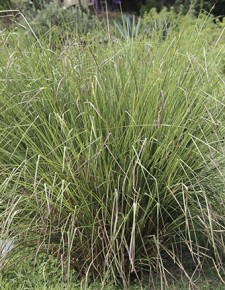Almond Oil – Skin Health
How to Use Almond Oil for Your Skin & Overall Health
from Dr. Axe
Your skin needs it. Your heart needs it. Even your colon needs it! Almond oil takes the mighty, nutrition-rich almonds and transforms it into a powerful oil with incredible benefits.
Though there are two main kinds of almonds that create almond oil, the one used for most homeopathic and cosmetic purposes is sweet almond oil. Don’t let the name fool you, though: Sweet almond oil is a dynamic substance that’s anything but sweet. In fact, it helps address bad cholesterol, dry skin and cardiovascular disease — which is, of course, really great news!
Almond oil presents not only a variety of benefits, but also some fascinating history and unconventional uses. For example, did you know that it has been presented as an alternative, renewable biofuel source? Or that your pets can benefit from almond oil, too? It’s even been shown to prevent diabetes and cancer, in addition to its skin care support!
You’ll have to keep reading to find out how … but let’s just say for now that sweet almond oil is no wimp when it comes to health, beauty and life in general.
Where Did Almond Oil Come From?
The almond, or Prunus dulcis (also known as Amygdalus communis L.), originated in southwest Asia and the Middle East, as far as the Indus River in Pakistan. Prunus dulcis and its synonyms officially refer to the tree from which the edible almond seeds are cultivated.
Although commonly grouped with other tree nuts like nutritious cashews, what you know as an almond is actually a “drupe,” a fruit with an outer hull encasing a shell with the seed inside.
Almond domestication started when, centuries ago, farmers began to identify and pick the sweet type of almond, although the history is fuzzy on how man was able to correctly select the sweet almond over its bitter brother. Bitter almonds are occasionally used in oil form, but it’s widely understood that bitter almond is toxic in even some small doses as it contains cyanide. In the U.S., all commercially grown and distributed almonds are sweet almonds.
Interestingly, there are some uses of bitter almond oil that may be undertaken with a doctor’s supervision. When the cyanide has been extracted from bitter almond oil, it has antiviral, antibacterial, anti-itch, anti-fungal and antispasmodic properties.
As with most foods, almonds have varieties within their general categories. While the typical sweet almond varieties available in the U.S. are grown in California, popularity is growing for Marcona almonds, a special product harvested exclusively in Spain. For cooking purposes, Marcona almonds are even sweeter than standard almonds, plumper and have a “wet” texture. When oil is extracted, the different varieties of sweet almond oil can be subtly noticed, but all sweet almonds have basically the same nutritional value.
Almond Oil Nutrition Facts
Research proves that the healthy fats (unsaturated) in almonds, along with fiber and various minerals, make them cholesterol-lowering and reduce the risk of cardiovascular disease and diabetes. Almonds are also used in body weight reduction and glucose management, and are known to have anti-inflammatory and anti-oxidative properties.
One hundred grams of almond oil contains 60 international units of vitamin E, 200 percent of the daily recommended amount. Other than a small amount of vitamin K, other vitamins and minerals are found in only negligible amounts in almond oil. Generally, its benefits are found in incredibly dense amounts of unsaturated fat.
Almond Oil Benefits
1. Regulates Cholesterol
One of the most widely known benefits of almond oil is its ability to regulate cholesterol. Regular consumption of almond oil raises HDL cholesterol (known as “good” cholesterol), lowers LDL (“bad” cholesterol) and generally lowers overall cholesterol levels naturally.
Between the high unsaturated fat content (which is already really good for your cholesterol levels) and vitamin E, almond oil allows oxygen and nutrients to flow freely through your blood, meaning that your heart will thank you for gifting it with almond oil.
2. Reduces Risk of Heart Disease
Not only can you expect better cholesterol levels with almond oil as a regular part of your diet, but you can also look forward to a decreased risk of cardiovascular disease, according to a 2014 study published in the Journal of Research in Medical Sciences. Heart disease, like high cholesterol and many other conditions, is often caused by chronic inflammation. Real foods with anti-oxidative and anti-inflammatory properties, therefore, generally reduce your risk for many common health conditions.
If you are already at risk for coronary heart disease, I highly recommend adding regular almond oil consumption to your diet. This, in conjunction with eating good sulfur-containing superfoods (such as eggs or kale) and getting good omega-3 fatty acids, should help you to reduce inflammation in your body and keep your heart healthy.
3. Protects Against Diabetes
Diabetes occurs when your blood sugar becomes elevated due to your pancreas or cells being unable to produce insulin properly. Almonds and almond oil have been proven to both help regulate blood sugar levels and even prevent diabetes!
When it comes to diabetes natural treatment, we must start with diet. When it comes to diabetes, especially type 2 diabetes, we really need to balance out blood sugar. Diet-wise, there are certain foods that help do that.
First, let me kind of shape a meal for you. Ideally, your meals are going to be high in three things: protein, fiber and healthy fats. So protein foods like wild salmon and free-range eggs, high-fiber foods like split peas and figs, and healthy fats like coconut oil and MCT oil are going to help balance out those blood sugar levels.
So include lots of protein in your new diabetic diet plan. After wild-caught salmon, go for grass-fed beef, organic chicken and turkey. Fiber-rich foods are even more important, including artichokes, green leafy vegetables, celery, nuts and seeds (like chia seeds, flaxseeds, pumpkin seeds, almonds, walnuts, celery. A high-fiber diet will support detoxification and healthy blood sugar levels.
Also, start using coconut oil, which is great for burning fat. Coconut oil benefits blood glucose levels, too. Start cooking with coconut oil and using coconut milk or coconut oil in a morning superfood shake. Coconut oil, ghee or grass-fed butter all work for balancing out blood sugar levels. A good diabetic diet plan include those healthy fatty acids.
So remember to get in protein, fiber and healthy fats during all of your meals.
In a Purdue University study, researchers found consuming almonds at breakfast (in the form of whole almonds, almond butter, almond flour and almond oil) decreased blood sugar levels and made participants feel more full, avoiding the second-meal dip that many diabetic patients or patients in the prediabetes stage experience. In fact, in that particular study, almond oil performed as well as whole almonds at encouraging insulin production after the first meal (and even better than almond flour and almond butter!).
Another trial conducted by the Clinical Nutrition and Risk Factor Modification Center at St. Michael’s Hospital in Toronto suggested that almonds, combined with foods high in carbohydrates (meaning foods with a high glycemic index), may actually decrease the glycemic level of an overall meal, again helping those with insulin resistance or at risk for diabetes to regulate their blood sugar levels.
4. Promotes Healthy Weight
An almond-enriched diet can also help you shed extra pounds and lose weight fast. A great deal of research has proven that people who consume almonds (and/or almond oil) as a regular part of their diets show greater weight loss than people on an identical diet without almonds.
One common concern people have when introducing almond products into their diets is the potential weight gain, as almonds are high in fat. However, the perception that a low-fat diet is good for you is actually a myth! A balanced diet includes plenty of plant-based foods and healthy fats — not least of which because fats help you to feel satisfied when you finish eating.
5. Keeps Your Colon and Rectum Healthy
It’s everyone’s favorite subject — rectal health! But let’s be honest, problems with your colon and other digestive areas can be a pain in the … well, you get the point. Almond oil is extremely effective in helping keep you healthy in that particular nether region.
For example, consuming almonds reduces your risk of colon cancer. Almond oil injection is also the first method of treatment to cure rectal prolapse in children.
In a study from the Faculty of Medicine at Cairo University in Egypt, patients with idiopathic pruritus ani (an unexplained itching of the anal region that can’t be cured by medication) were given almond oil injections. Almost 93 percent of participants were permanently cured after the first treatment, and the additional patients that went through a brief remission and then had the condition recur were cured after their second treatments.
If you’re in need of a mild, natural laxative to relieve constipation, you can also drink two tablespoons of almond oil (or pour it over salads or vegetables) daily. Some research even suggests a correlation between almond oil and relief of irritable bowel syndrome.
6. Treats Earaches
Earaches are a common problem, especially among children, and the causes vary. There are many homeopathic options for relieving ear pain and treating ear infections. One such natural ear infection remedy is sweet almond oil, known for its quick relief of ear pain.
It’s used to soften ear wax and relieve blockage in the ventilation tubes within the ear. In fact, sweet almond oil, unlike many other earwax softeners, has been proven to be safe for the ear, even if there are microscopic cuts inside (as many other earwax softeners tend to cause infection if exposed to microscopic abrasions within the ear).
Simply warm a tablespoon in hot water, put two to three drops of almond oil in the spoon and drop it into the affected ear, allowing the warm oil to go down the ear canal.
7. Great for Your Skin and Hair
One of the most well-known benefits of almond oil is its ability to keep your skin and hair looking great! As a mild, hypoallergenic oil, it’s safe for sensitive skin, including baby skin. Absorption is best when the oil is warmed to body temperature before application. It’s also a great idea to combine it with a few essential oils for triple power — myrrh and rose oils are two common essentials that keep your skin looking healthy as well.
Probably due in large part to its anti-oxidative properties, sweet almond oil is known for protecting skin against UV radiation damage and keeping skin soft and supple. A 2007 study by the Departments of Pharmaceutics at Hamdard University in India found it to both prevent initial UV damage and slow down the effects of UV damage after it happened.
Almond oil has a light texture and easily absorbs into skin. It can be used to gently dislodge debris from deep within skin pores and follicles, and also may help prevent future acne because of its vitamin A content. You can even create a natural facial scrub using fine sugar mixed with sweet almond oil, safe for even those with sensitive skin.
The dark circles under your eyes don’t stand a chance! When you apply a few warm drops beneath your bottom eyelid before bed, you can expect to see brighter, less puffy eyes. Applied all over the face, almond oil can also delay general signs of aging as it renews the cells of your facial skin.
Do you suffer from psoriasis and/or eczema? Lucky for you, almond oil is a natural remedy for eczema and psoriasis. Both of these conditions are caused by multiple factors, including poor digestion. As another safe remedy to treat these skin conditions, almond oil helps relieve the inflammation, itchiness and redness of psoriasis or eczema.
Other skin and beauty ideas for almond oil are to use it as a makeup remover, to treat chapped lips, to reduce undesired layers of tan and to work it through your hair as a substitute for leave-in conditioner.
Almond Oil History & Interesting Facts
For centuries, people have used almond oil for its incredible multifaceted benefits. Its uses in treating dry skin conditions, such as psoriasis and eczema, were taught as part of ancient Chinese, Ayurvedic and Greco-Persian schools of medicine.
Almonds originated in the Middle East and Asia and weren’t transported to the U.S. until much more recently — specifically California, where the majority of U.S. almond production happens. The first appearance of the almond tree in the U.S. and Europe was recorded in the 19th century.
There are lots of interesting uses for almond oil beyond its medicinal and cosmetic functions. Like I mentioned earlier, almond oil has recently been tested as a potentially beneficial biodiesel fuel. It can also treat dermatitis in dogs and has been used as an ingredient in an all-natural, non-abrasive toothpaste that rids teeth of plaque without wearing away enamel. It’s even used as a wood conditioner of some types of woodwind instruments, such as the oboe and clarinet.
Almond oil also has potential in humanitarian efforts in developing countries. Aluminum phosphide (ALP) is a pesticide used to protect rice during storage in many developing world areas. However, ALP is toxic and is one of the most common causes of poisoning and sometimes suicide, especially in India and Iran.
Recently, scientists from Tehran University of Medical Sciences in Iran tested the use of sweet almond oil (taken orally) and found it to be a fairly effective antidote to ALP, significantly reducing the number of deaths from those exposed. That’s an incredible finding, as no other effective antidote for ALP has ever been found.
How Should You Use Almond Oil?
It’s easy to use almond oil in a variety of ways in your daily life. Almond oil is light enough to use directly on the skin, though it’s not generally recommended as an overall facial moisturizer, because it can cause unwanted oiliness on the face. You can also apply it directly to your hair.
To ingest almond oil, simply drink two to four tablespoons of it, preferably from a warm tablespoon, as it absorbs more quickly into your system if its temperature is closer to your natural body temperature. You may also mix it into a protein drink or drizzle it on salads, veggies or potatoes. You can even cook with it! It smokes at 430 degrees Fahrenheit, so it’s safe to use in stir-fries, to make French fries or to cook in general.
Another popular way to use sweet almond oil is to dilute essential oils from their purest form to make them safer for direct skin application. When used this way, almond oil is considered a carrier oil, carrying the essential oil onto the skin. It makes a good carrier because of its mild smell and doesn’t easily evaporate.
Almond Oil Recipes
Tired of dry, itchy eczema on your skin? I’ve created a recipe for organic, homemade Eczema Cream that you’re going to really love! It’s power-packed with tons of ingredients specifically known for their ability to bring your skin to its full potential.
Want to include sweet almond oil in your diet but not a fan of drinking oil? You can add it to one of my favorite healthy smoothie recipes and start the day out right.
Almond Oil Cautions
While sweet almond oil is generally safe, there are a few cautions to consider when introducing it into your diet and lifestyle. First off, anyone with a nut allergy should avoid consuming almond oil or other almond products. A research study from Texas Tech University also suggests a negative interaction between almond oil and alcohol. If you have pancreatitis, you may also want to avoid consuming almond products.
As mentioned above, the brother to sweet almond oil, bitter almond oil, should never be used without direct supervision and direction of a doctor. And don’t forget to consult your primary care physician before using almond oil to treat or prevent disease, especially if you are on medication, as it has the potential to interact with certain medicines, such as cholesterol-lowering or diabetes treatments.













